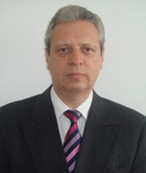The Asan Institute for Policy Studies hosted the Asan Dosirak Series with H.E. Mr. Viorel Isticioaia Budura, Managing Director for Asia and the Pacific at the European External Action Service (EEAS), on Wednesday, February 26, 2014. His talk titled, “EU Policy Priorities in Asia and the Pacific” addressed the latest developments on the EU-ROK relationship and policy and security issues on the Korean Peninsula and Northeast Asia.
Date / Time: Wednesday, February 26, 2014/ 10:30AM-1:00PM
Place: Conference Room (2F), The Asan Institute for Policy Studies
Summary
Mr. Isticioaia Budura began by speaking on the current status and prospects for the EEAS relations with its strategic partners in Asia, namely South Korea, Japan, China, and India. He emphasized that these strategic partnerships were made with the intention to open a new chapter of bilateral relations and to broaden bilateral relations beyond trade. The political framework agreement between South Korea and the EU, which was concluded in 2010, expanded areas of bilateral cooperation and policy including climate change, energy, migration, etc. Negotiations continue with Japan on a political framework agreement (FA) and a free trade agreement (FTA), the conclusion of which could lead to other areas of cooperation on regional and international issues. Although FTA negotiations have started with India, there are still a number of issues on the agenda within the Indian legislation. The EU has recently concluded an investment agreement with China, the largest ever concluded by the EU, in January 2014, but several issues still remain on the negotiation table.
According to Mr. Isticioaia Budura, other Asia-Pacific countries such as Australia and New Zealand are labeled as “like-minded partners” and are negotiating framework agreements together with free trade agreements with the EU. Mr. Isticioaia Budura considers ASEAN to be a sister organization of the EU where it receives support in community building projects and is viewed as playing an important role in shaping the regional structure of Asia. In concluding his agenda on EU’s Asia policy, Mr. Isticioaia Budura stated that the EU should present itself as a model of collective entity and offer ideas in addressing current challenges of the region left by the legacies of history. The EU is proof that such challenges can be overcome and that it has a number of assets and a great deal of experience in multilateral institution building aimed at keeping regional peace and prosperity. Mr. Isticioaia Budura emphasized that the EU is looking forward to cooperating with its Asian partners as they look towards establishing similar institutions.
Mr. Isticioaia Budura concludes that the EU-Korea relationship is a pioneering exercise built on a solid foundation. The EU closely follows developments on the Korean Peninsula and supports international solidarity in condemning the North Korean regime. The EU meets with North Korean officials two or three times a year in Brussels and seven of its member states have embassies in Pyongyang. Officials from North Korea are interested in having EU representation on the ground in North Korea for the benefits of training and establishing diplomatic channels. The EU would accept such requests, provided that North Korea complies with some key expectations. The human rights issue is of big priority for the EU. Mr. Isticioaia Budura considers that the recent report of the UN Commission of Inquiry on the human rights situation in North Korea has brought evidence that North Korean authorities should take into account. He emphasized that the EU can offer a mirror on how the international community perceives the situation.
During the Q&A session, questions mostly focused on the progress of EU-China relations, technicalities of the EEAS and the way that the EEAS operates with the EU. Mr. Isticioaia Budura responded by emphasizing the soft power element of the EU and his perspective on the EU-China negotiations. Mr. Isticioaia Budura also pointed out the important role the EEAS is playing for the EU and its member states in providing diplomatic resources in Asia.
The views expressed herein do not necessarily reflect the views of The Asan Institute for Policy Studies.
Speaker
 H.E. Mr. Viorel Isticioaia Budura is the Managing Director for Asia and the Pacific at the European External Action Service. He is also a guest professor at Beijing University of Foreign Studies and a member of the Council of the Association of the Beijing University Alumni. Prior to this, he was the Ambassador of Romania to the People’s Republic of China and Mongolia (2002-2010), and the Ambassador of Romania to the Republic of Korea (2000-2002). Other former positions include minister counsellor at the Embassy of Romania, London; deputy director at the UN Department of the Ministry of Foreign Affairs of Romania; and minister counsellor at the Embassy of Romania, Tokyo. Ambassador Isticioaia Budura holds a B.A. in philosophy and history from the University of Bucharest and a B.A. in Chinese language and literature from Nankai University, Tianjin, China.
H.E. Mr. Viorel Isticioaia Budura is the Managing Director for Asia and the Pacific at the European External Action Service. He is also a guest professor at Beijing University of Foreign Studies and a member of the Council of the Association of the Beijing University Alumni. Prior to this, he was the Ambassador of Romania to the People’s Republic of China and Mongolia (2002-2010), and the Ambassador of Romania to the Republic of Korea (2000-2002). Other former positions include minister counsellor at the Embassy of Romania, London; deputy director at the UN Department of the Ministry of Foreign Affairs of Romania; and minister counsellor at the Embassy of Romania, Tokyo. Ambassador Isticioaia Budura holds a B.A. in philosophy and history from the University of Bucharest and a B.A. in Chinese language and literature from Nankai University, Tianjin, China.

 Facebook
Facebook Twitter
Twitter







